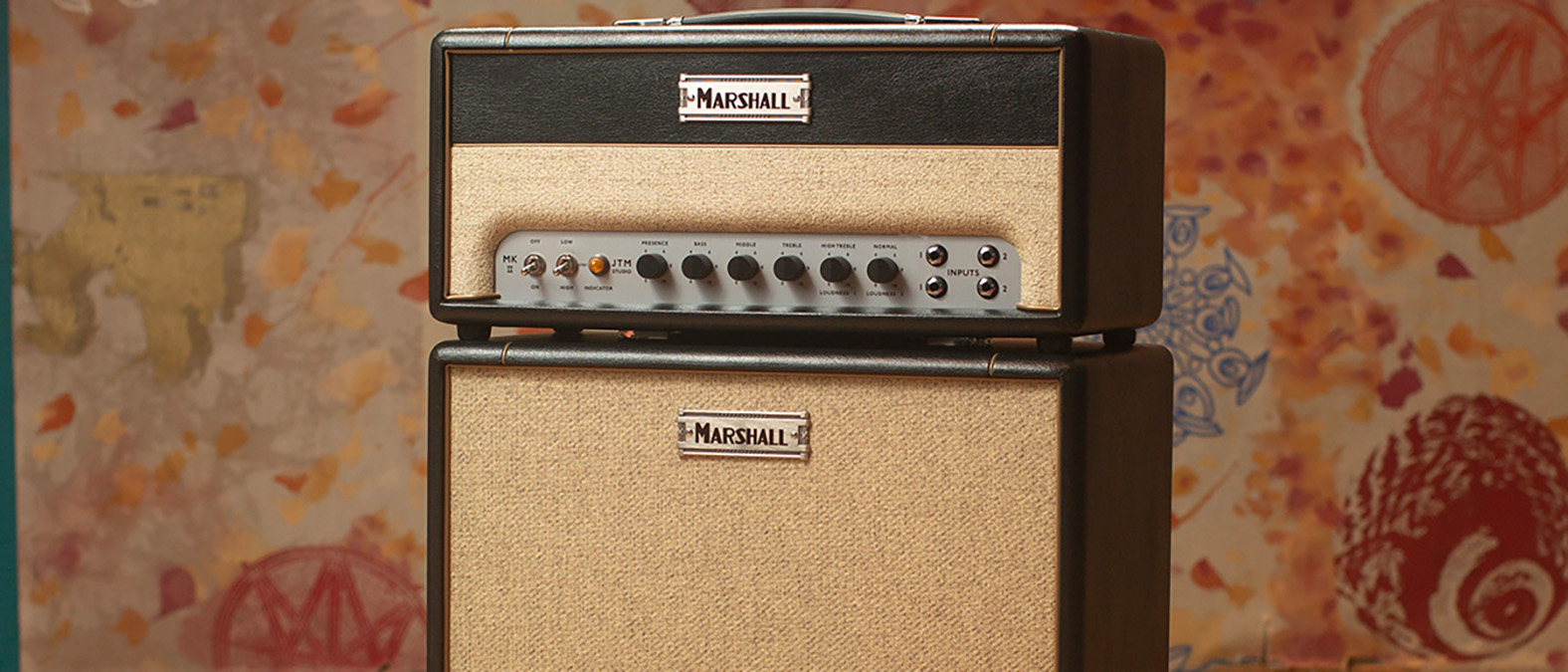MusicRadar Verdict
Marshall expands the beloved Studio Series with an impressive take on one of the world's most revered and revolutionary amps. From its Art Deco styling and retro tones, this compact head and cab is brimming with vintage mojo, but luckily it has enough contemporary features to help it keep pace with its modern stablemates. Marshall has knocked it out of the park with this one.
Pros
- +
Marshall has nailed the look
- +
True vintage tones
- +
Both the head and cab are lightweight
- +
Modern FX Loop and DI out are convenient features
Cons
- -
Even at 5W, it's still deafening
- -
Yes, the original didn't have reverb, but we'd love one here
MusicRadar's got your back
Marshall Studio JTM ST20H 20W head & ST212 cab: What is it?
It can't be understated just how much of an impact Jim Marshall's JTM tube amp had on the emerging world of rock 'n' roll - with the "coffin logo" version from 1964 being seen as the holy grail by many players.
Yes, the original may have been inspired by the beloved Fender 5F6-A Bassman, but the JTM was a different breed altogether - thanks in part to the use of British KT66 output and ECC83 preamp valves. This new class of amplifier delivered a tone and power that players of the day had never experienced and well, the rest is history.
If you fancy owning a little slice of rock history - and you don't have £16,999 hidden down the back of the sofa - Marshall may have just released the next best thing to possessing an original example. The newly launched Marshall JTM Studio head and matching ST212 cabinet is the most recent edition to the celebrated Studio line and the British amp giant's latest venture into modernised vintage reissues.
Hand-built in Bletchley, England, the Studio JTM features a finger-jointed cabinet, hand-welded chassis, as well as hand-soldered potentiometers and valve bases. The tonal heart of this compact head is a pair of ECC83 preamp valves, two 5881 power amp valves and a single ECC83 phase splitter, which deliver the period-correct tone most of us are chasing.
Now, while the original produced a gut-punching 30W of power, its contemporary delivers a slightly more manageable 20W, which can be dropped to a more comfortable 5W for use at home or in the studio. Continuing the modern features is a DI out and FX loop, which bring this veteran amp bang up to date.
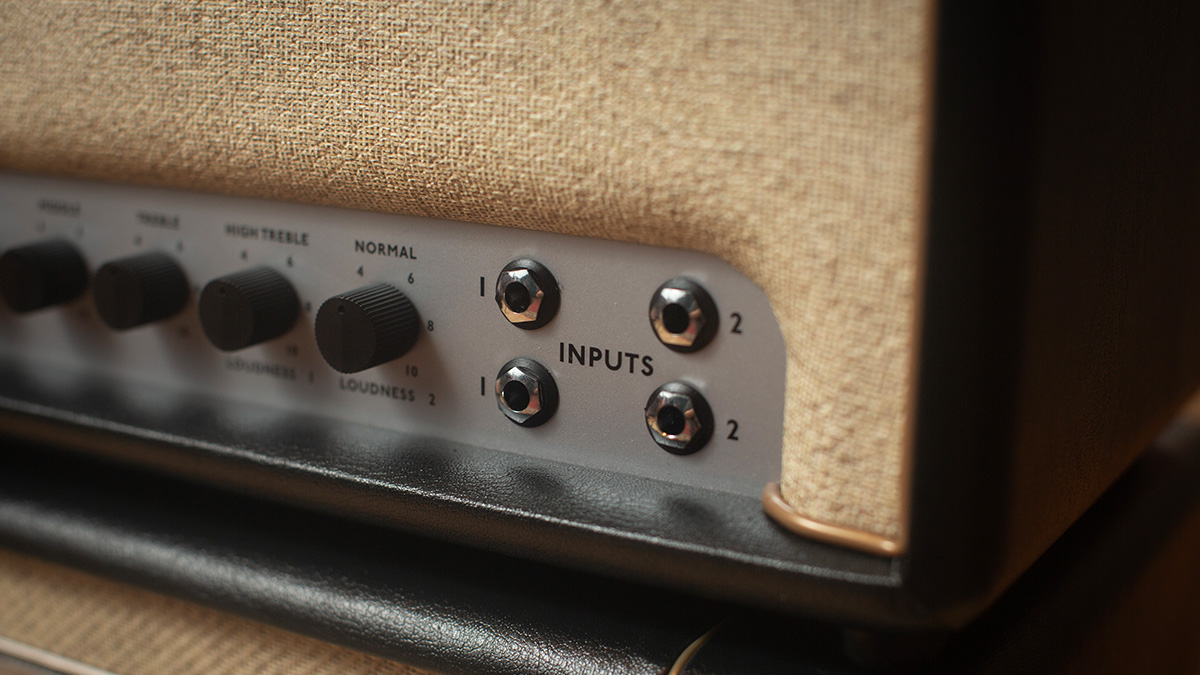
Marshall Studio JTM ST20H 20W head & ST212 cab: Performance and verdict
The first thing we noticed while unboxing the new Marshall is just how well it's been put together. Despite being deceptively lightweight, the amp - and cab, for that matter - feels solid, robust and very well made. This is a testament to the build quality of the Bletchley factory, and we must say, our first impressions set our expectations sky-high.
PRS HDRX 20: This compact valve head from Paul Reed Smith also draws inspiration from 1960s Britain and features the "Authentic Hendrix" Touring Circuit. This circuit is based on Jimi's famous Woodstock amplifier.
Friedman Little Sister: Sticking with the theme of British-inspired low-wattage heads, we can't forget the astonishing Friedman Little Sister. This amp perfectly delivers those shimmery cleans and spikey vintage crunch tones you'd expect from a retro-style amp, just at a more manageable volume.
Before diving into the sounds, we must first talk about the amp's stunning vintage aesthetic. Designed to replicate the vibe of the 1964 version of the JTM45, this amp doesn't follow the stark gold and black look of many Marshalls but instead opts for period-correct details that place it directly in the swinging sixties. With its fawn front, silver panel and retro "coffin" logo, this amp is simply a work of art - and the matching Creamback-loaded upright cabinet is a handsome companion both aesthetically and sonically.
Okay, so the JTM Studio certainly scores 10/10 for looks, but how does it sound? Well, in a nutshell, fantastic. This amp oozes vintage mojo with a tone that perfectly harkens back to a bygone age. Now, the heritage tone of the JTM Studio can't compete with the high-gain flavours of the JCM-inspired Studio Classic, but it's not trying to - if anything, it's trying to do the opposite.
This plucky little valve head has a surprising amount of headroom, with a clear, warm and full-bodied tone that stays relatively clean even when pushed to its limits. This amp absolutely nails bluesy breakup, but fans of face-melting gain will need to look elsewhere.
At 20W, the sound has a Fender-esque presence, a tonal characteristic which is sometimes lost in modern Marshall variants. We chose to put this new Marshall through its paces with a period-appropriate guitar, opting to use a '60s reissue Gibson ES-335. So, as you can imagine, we welcomed the extra high-end sparkle with open arms, as it perfectly complemented the "bell-like" chime of our Gibson semi-hollow.
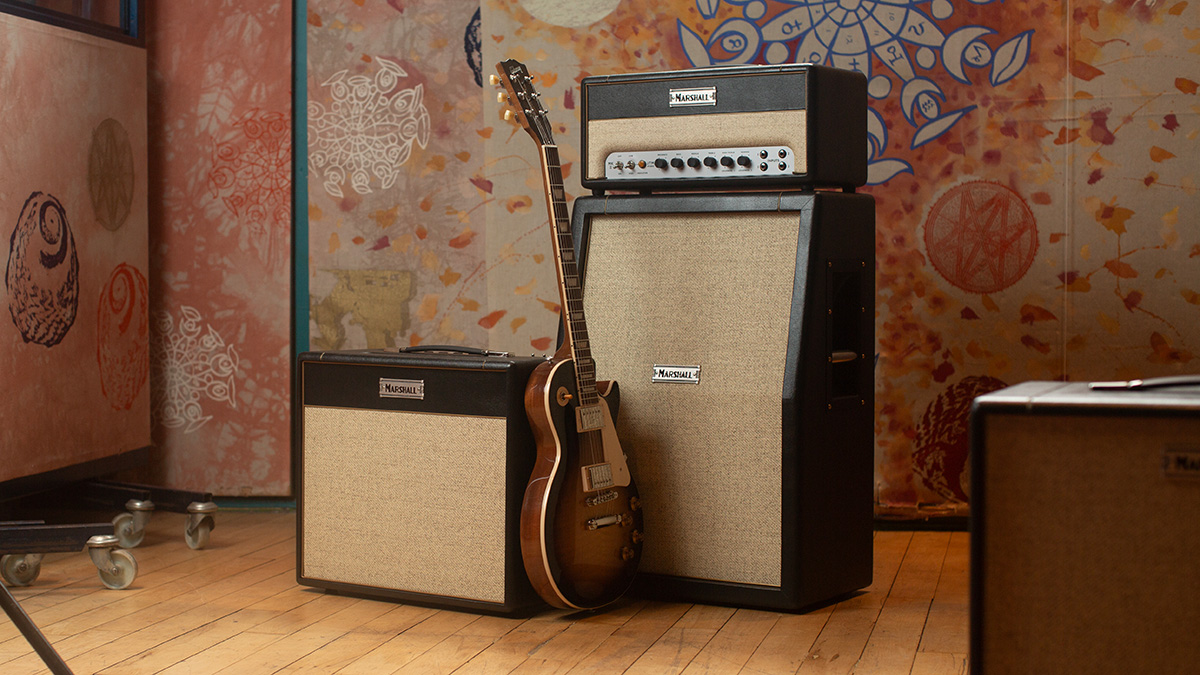
Switching the JTM Studio to "low power" mode drops the amp's output to 5W, giving you a little more control over the breakup and a slightly reduced overall volume. Even though we loved how the amp responded to dynamics in this mode, we have to mention that it is still loud, very loud, in fact. So if you were expecting a bedroom-friendly practice amp for late-night jamming, this might not be the one for you.
Back in the day, it was common practice to "jump" the channels of these early Marshall amps resulting in more sonic control - and we're happy to report you can do the same thing with the modern version. For us, this is where the Studio JTM came to life, and once the channels were bridged, we found the thought of unlinking them incomprehensible. We did find that the top-end could get slightly harsh at times, though, so it's worth spending a little time dialling in the high frequencies so your gut-busting solo doesn't become an ice pick to the ears of your audience.
Like the original, the JMT Studio opts for a very simplified control layout that's intuitive and easy to understand. However, the blacked-out antique-style dials are hard to read, which could be a nightmare on a dimly lit stage or studio environment.
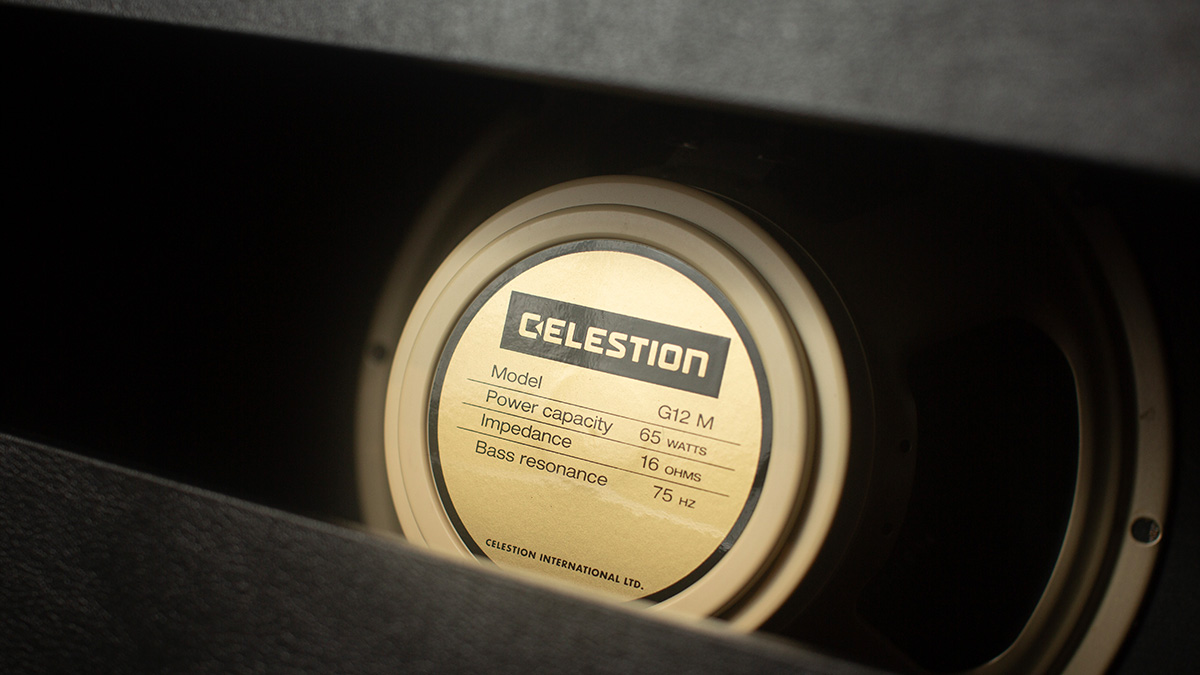
We've always had a soft spot for Creamback speakers - especially in a 2x12 format - so it's no surprise that we enjoyed the sound of the accompanying cabinet. The frequency response was broad and even, with a natural warmth that perfectly paired with the amp. Really, these two are a match made in heaven - and well, it certainly helps that they look so freakin' cool together.
Finally, we turn our attention to the rear of the amp, which houses two modern features not found on the original – an FX loop and DI output. As there is no onboard reverb built into the head, we found ourselves utilising the FX loop for the entirety of our tests. Simply plugging our favourite reverb pedal into the loop was enough to make us feel a little less self-conscious and took the edge off the dry nature of the amp.
The DI out is a welcome addition and ideal for those looking to capture this vintage tone in as few steps as possible for recording guitar at home - truth be told, we couldn’t resist adding a little bit of this Marshall magic to one of our own tracks while testing it out. Of course, this output is for more than just recording and could come in very handy if you want to take your new studio companion on the road.
MusicRadar Verdict: Marshall expands the beloved Studio Series with an impressive take on one of the world's most revered and revolutionary amps. From its Art Deco styling and retro tones, this compact head and cab is brimming with vintage mojo, but luckily it has enough contemporary features to help it keep pace with its modern stablemates. Marshall has knocked it out of the park with this one.
Marshall Studio JTM ST20H 20W head & ST212 cab: Hands-on demos
Marshall
Marshall Studio JTM ST20H 20W head & ST212 cab: Specifications
Marshall Studio JTM ST20H 20W head
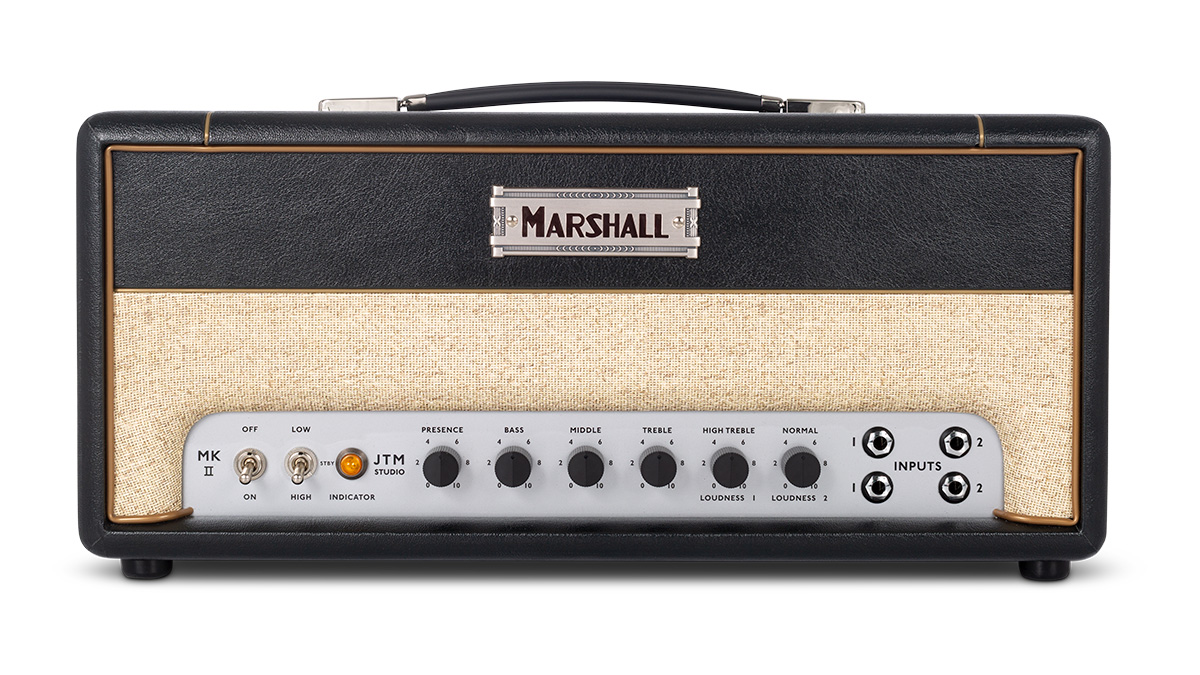
- Power: 20W/ 5W
- Valves: 2 x ECC83 preamp valves, 1 x ECC83 phase splitter & 2 x 5881 power amp valves
- Features: Switchable power, DI out, FX loop
- Price: $1,750 | £1,075
Marshall ST212 Cabinet
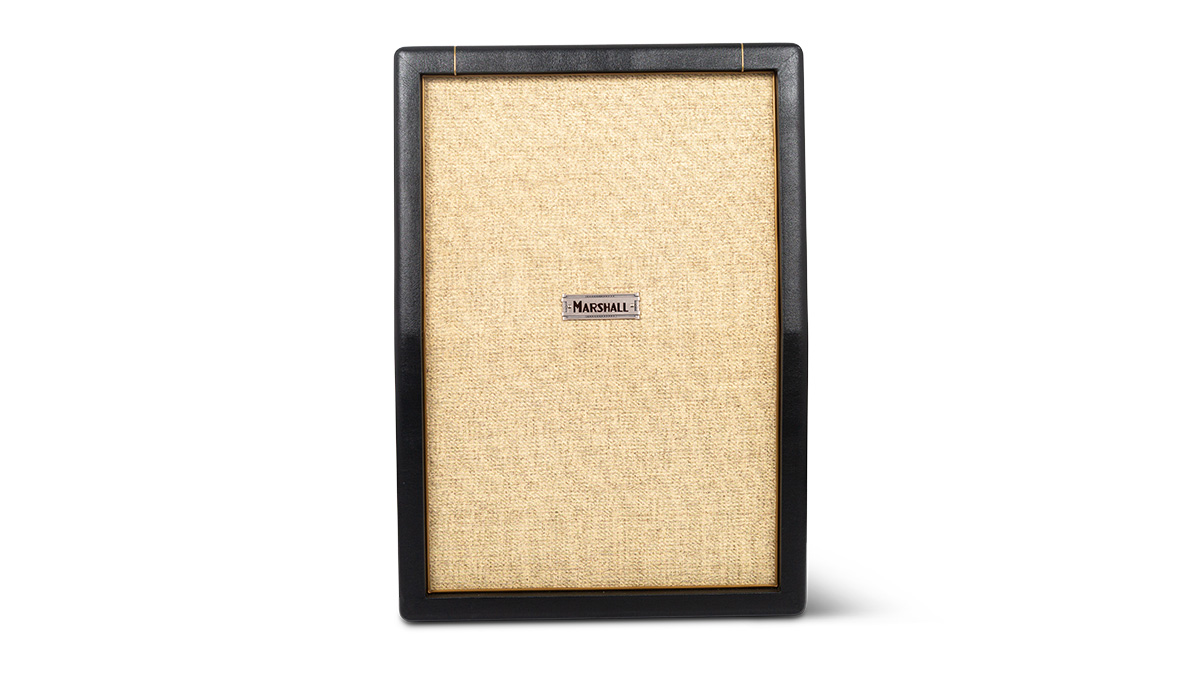
- Speakers: 2 x 65W G12M-65 Creamback
- Ohms: 8Ω
- Price: $1,400 | £1,075
- Contact: Marshall
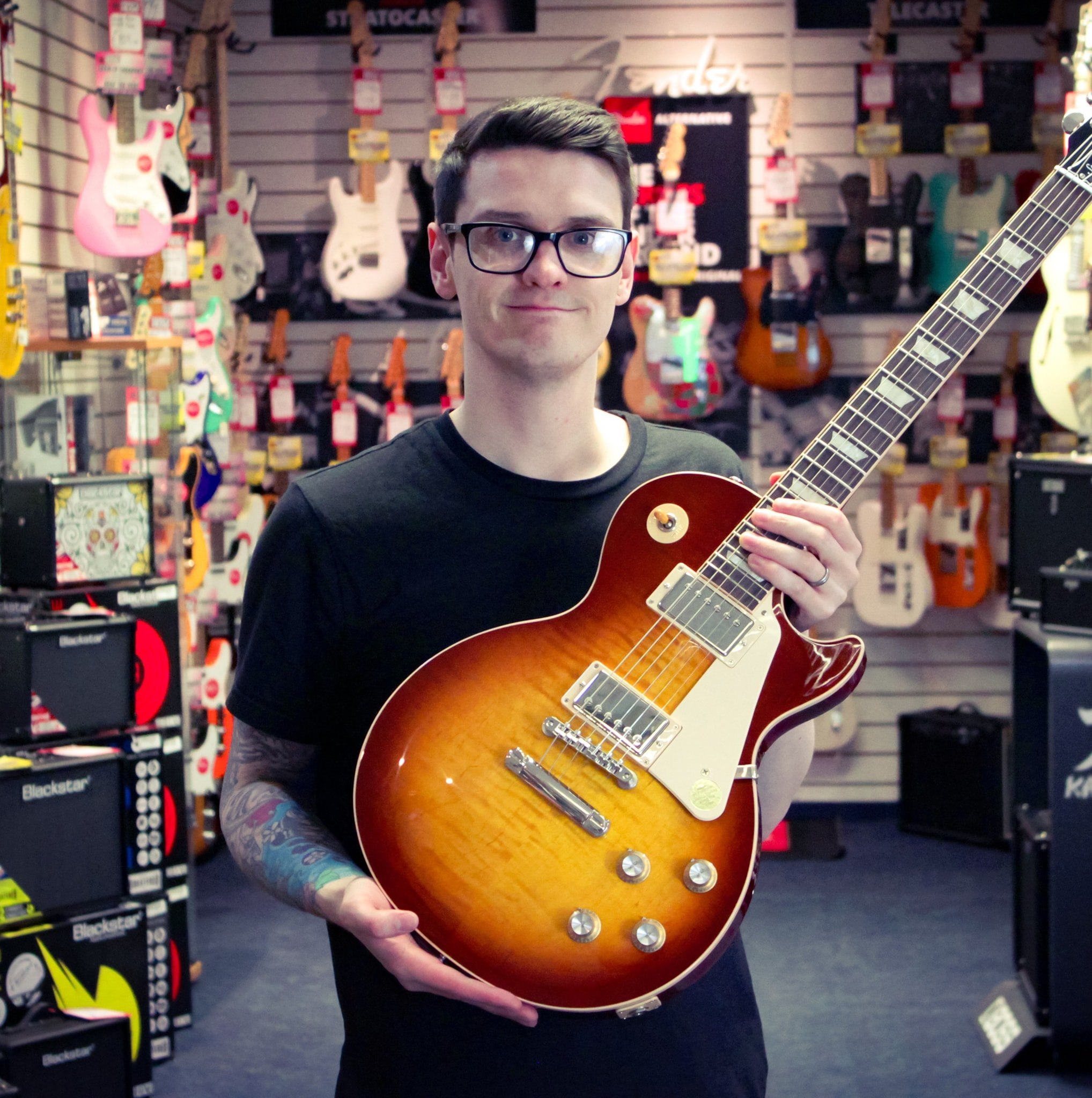
I'm a Senior Deals Writer at MusicRadar, and I'm responsible for writing and maintaining buyer's guides on the site - but that's not all I do. As part of my role, I also scour the internet for the best deals I can find on gear and get hands-on with the products for reviews. My gear reviews have been published in prominent publications, including Total Guitar and Future Music magazine, as well as Guitar World.com. I've also had the privilege of interviewing everyone from Slash to Yungblud, as well as members of Sum 41, Foo Fighters, The Offspring, Fever 333 and many more.
I have a massive passion for anything that makes a sound, particularly guitars, pianos, and recording equipment. In a previous life, I worked in music retail, giving advice on all aspects of music creation and selling everything from digital pianos to electric guitars, entire PA systems, and ukuleles. I'm also a fully qualified sound engineer who holds a first-class Bachelor's degree in Creative Sound Production from the University of Abertay and I have plenty of experience working in various venues around Scotland.
“Excels at unique modulated timbres, atonal drones and microtonal sequences that reinvent themselves each time you dare to touch the synth”: Soma Laboratories Lyra-4 review
“I used everything I knew about music”: How Green Day exceeded expectations with their most ambitious song
YouTube just added AI tools that makes musicians, library music and video editors redundant
